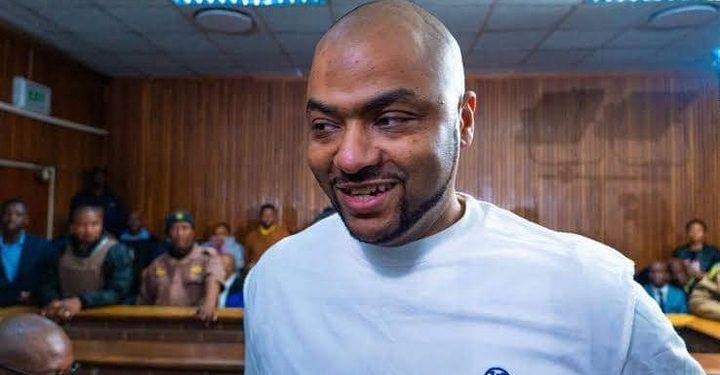In a shocking revelation, reports have emerged detailing the intricate web of corruption, crime, and exploitation within the walls of South Africa’s Mangaung Correctional Facility. At the center of this grim narrative is Thabo Bester, a convicted rapist and murderer, who not only orchestrated a reign of terror within the prison but also operated a clandestine prostitution and drug empire, implicating several female prison guards in the process.
The revelation paints a disturbing picture of the inherent vulnerabilities within the country’s correctional system, where inmates and corrupt guards collude to perpetuate criminal activities with impunity. The involvement of Thabo Bester, a notorious criminal serving time for heinous crimes, underscores the failure of the system to effectively rehabilitate and secure its inmates, while also highlighting the pervasive influence of organized crime even behind bars.
Operating within the confines of Mangaung Correctional Facility, Thabo Bester and his cohorts established a sophisticated syndicate, exploiting the power differentials and vulnerabilities inherent in the prison environment. Leveraging his status and connections, Bester orchestrated a prostitution ring that not only catered to fellow inmates but also involved female prison guards, who were coerced or enticed into participating in the illicit enterprise. The presence of these guards within the syndicate not only facilitated the smooth operation of the criminal activities but also underscored the extent of corruption within the institution.
The revelation of such systemic corruption and criminality within the correctional system raises serious questions about accountability, oversight, and the adequacy of measures in place to prevent such egregious violations. The fact that Bester, a convicted felon serving time for violent crimes, was able to wield such influence and operate with impunity within the prison walls speaks volumes about the failures of the system to effectively monitor and control inmate behavior.
Moreover, the involvement of female prison guards in the prostitution ring sheds light on the broader issue of gender-based exploitation and vulnerability within the correctional system. These guards, often marginalized and subject to systemic inequalities within the workplace, were not only complicit in the criminal activities but also victims of coercion and manipulation themselves. Their involvement underscores the need for comprehensive reforms to address gender dynamics and power differentials within correctional facilities, ensuring the safety and dignity of all personnel.
The revelations also underscore the urgent need for a thorough investigation into the practices and protocols governing South Africa’s correctional facilities. The fact that such criminal enterprises could flourish under the noses of authorities points to systemic failures and lapses in oversight, necessitating immediate action to root out corruption, strengthen accountability mechanisms, and bolster security measures within prisons.
Furthermore, the case of Thabo Bester and the prostitution and drug ring he operated within Mangaung Correctional Facility serves as a stark reminder of the challenges and complexities inherent in the task of rehabilitating and reintegrating offenders into society. It highlights the importance of holistic approaches to rehabilitation that address not only the punitive aspects of incarceration but also the underlying socio-economic factors that contribute to criminal behavior.
In conclusion, the revelations regarding Thabo Bester’s involvement in a prostitution and drug ring within Mangaung Correctional Facility shine a spotlight on the dark underbelly of South Africa’s correctional system. They underscore the urgent need for comprehensive reforms to address corruption, crime, and exploitation within prisons, while also emphasizing the importance of a holistic approach to rehabilitation and reintegration. Only through concerted efforts to tackle systemic failures and vulnerabilities can the country hope to build a correctional system that upholds the principles of justice, accountability, and human dignity for all.






















